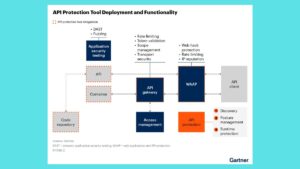HRTech Demand: Insights from the Latest B2B Whitepapers

As businesses continue to navigate the complexities of the modern workforce, the demand for HR technology (HRTech) has surged. This shift is driven by the need for enhanced talent management, improved employee experiences, and data-driven decision-making. To understand the evolving landscape of HRTech, we turn to recent B2B whitepapers that provide valuable insights into market trends, challenges, and future directions. In this blog, we will explore key findings from these reports and what they mean for HR professionals and organizations.
The Growing Demand for HRTech
1. Increased Focus on Employee Experience
Recent whitepapers emphasize that organizations are prioritizing employee experience as a critical component of their HR strategy. As the workforce becomes more diverse and remote work continues to be prevalent, companies recognize the need to invest in technology that enhances engagement and satisfaction.
- Key Finding: A study by Gartner revealed that organizations focusing on employee experience saw a 25% increase in employee productivity and a 20% decrease in turnover.
2. Data-Driven Decision Making
The use of data analytics in HR has become a significant trend, enabling organizations to make informed decisions based on real-time insights. Whitepapers highlight how businesses leverage HRTech tools to analyze employee performance, engagement levels, and turnover rates.
- Key Finding: According to a recent report from Deloitte, organizations using advanced analytics in HR experienced a 30% improvement in workforce planning accuracy.
3. Emphasis on Diversity and Inclusion
Diversity and inclusion (D&I) have emerged as top priorities for organizations. HRTech solutions that facilitate unbiased recruitment, training, and career development are in high demand. Whitepapers indicate that organizations are leveraging technology to foster a more inclusive workplace.
- Key Finding: A study by McKinsey found that companies with diverse teams are 35% more likely to outperform their competitors financially.
Challenges in the HRTech Landscape
While the demand for HRTech is increasing, several challenges remain:
1. Integration with Existing Systems
Many organizations struggle to integrate new HRTech solutions with their existing systems. Whitepapers stress the importance of seamless integration to avoid data silos and ensure a smooth user experience.
- Key Finding: A report by PwC noted that 60% of organizations identified integration as a significant barrier to adopting new HR technologies.
2. Change Management
Adopting new HR technologies often requires a cultural shift within organizations. Resistance to change can hinder successful implementation. Insights from whitepapers indicate that effective change management strategies are essential for overcoming these hurdles.
- Key Finding: According to research from Forrester, organizations with robust change management practices are 3.5 times more likely to achieve their technology implementation goals.
3. Keeping Pace with Rapid Technological Advancements
The HRTech landscape is evolving rapidly, with new tools and platforms emerging regularly. Organizations must stay informed about these advancements to remain competitive.
- Key Finding: A report by the Society for Human Resource Management (SHRM) highlighted that 70% of HR professionals feel they need to enhance their skills to keep up with technological changes.
Future Directions for HRTech
As organizations look ahead, several trends are shaping the future of HRTech:
1. AI and Automation
Artificial intelligence (AI) and automation are set to play a pivotal role in HRTech. Organizations are increasingly adopting AI-driven solutions for recruitment, employee engagement, and performance management.
- Key Insight: Whitepapers indicate that AI can help reduce time-to-hire by up to 75%, allowing HR teams to focus on strategic initiatives.
2. Enhanced Employee Self-Service
Employee self-service portals are gaining traction, enabling employees to access information and manage their HR-related tasks independently. This trend is expected to enhance employee satisfaction and reduce administrative burdens on HR teams.
- Key Insight: Research from HCM Technology Report suggests that 80% of employees prefer using self-service tools for HR tasks.
3. Focus on Learning and Development
Continuous learning and development will be a key focus area for organizations. HRTech solutions that offer personalized learning experiences and career development opportunities are expected to gain popularity.
- Key Insight: A study by LinkedIn Learning found that 94% of employees would stay at a company longer if it invested in their career development.
Conclusion
The demand for HR technology is reshaping how organizations manage their talent and navigate workforce challenges. Insights from the latest B2B whitepapers highlight the critical role of HRTech in enhancing employee experience, driving data-driven decision-making, and fostering diversity and inclusion.
While challenges such as integration and change management persist, the future of HRTech appears bright. As organizations continue to embrace technological advancements, they will be better positioned to attract, retain, and engage top talent. For HR professionals, staying informed about the latest trends and innovations in HRTech will be crucial for success in the evolving world of work.






